Ethno is JM International’s program for folk, world and traditional music. Founded in 1990, it is aimed at young musicians (up to the age of 30) with a mission to revive and keep alive global cultural heritage.
Present today in over 40 countries and on all 6 continents, Ethno engages young people through a series of annual international music camps as well as workshops, concerts and tours, working together with schools, conservatories and other groups of youth to promote peace, tolerance and understanding.
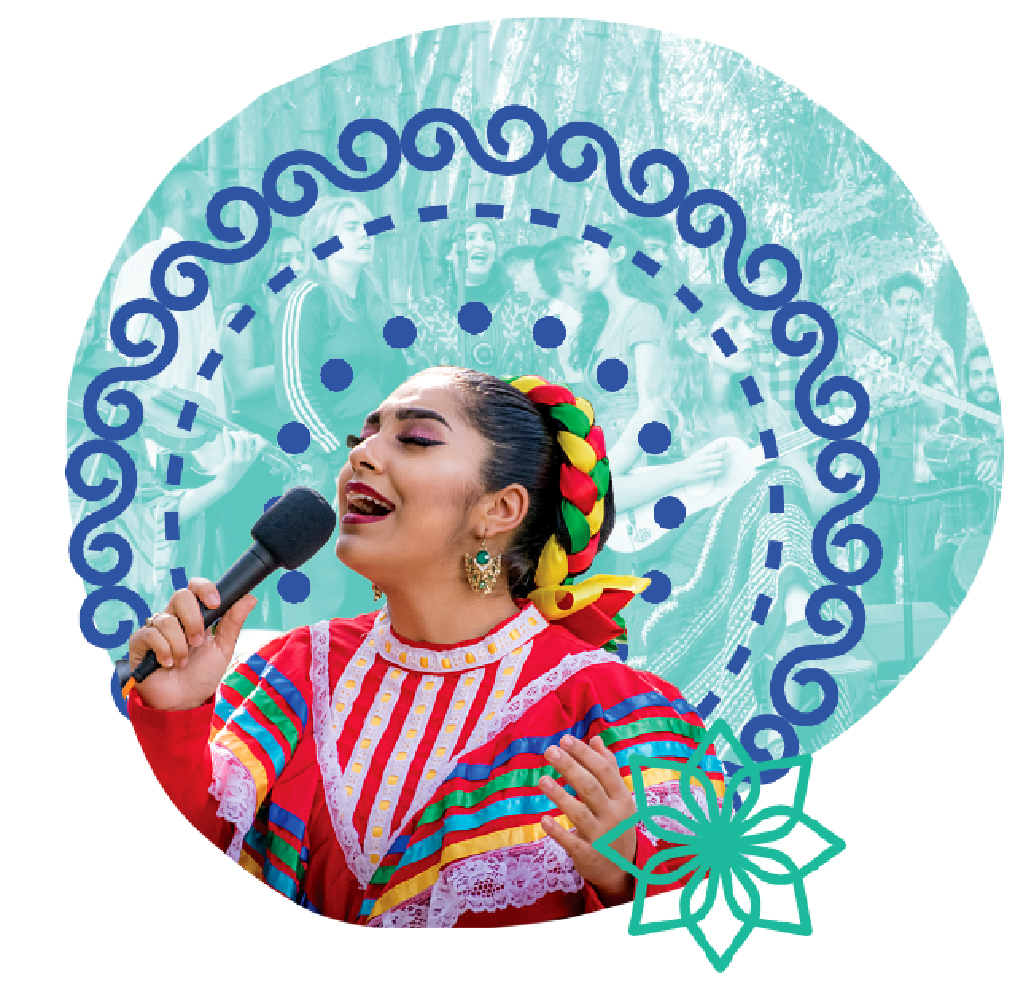
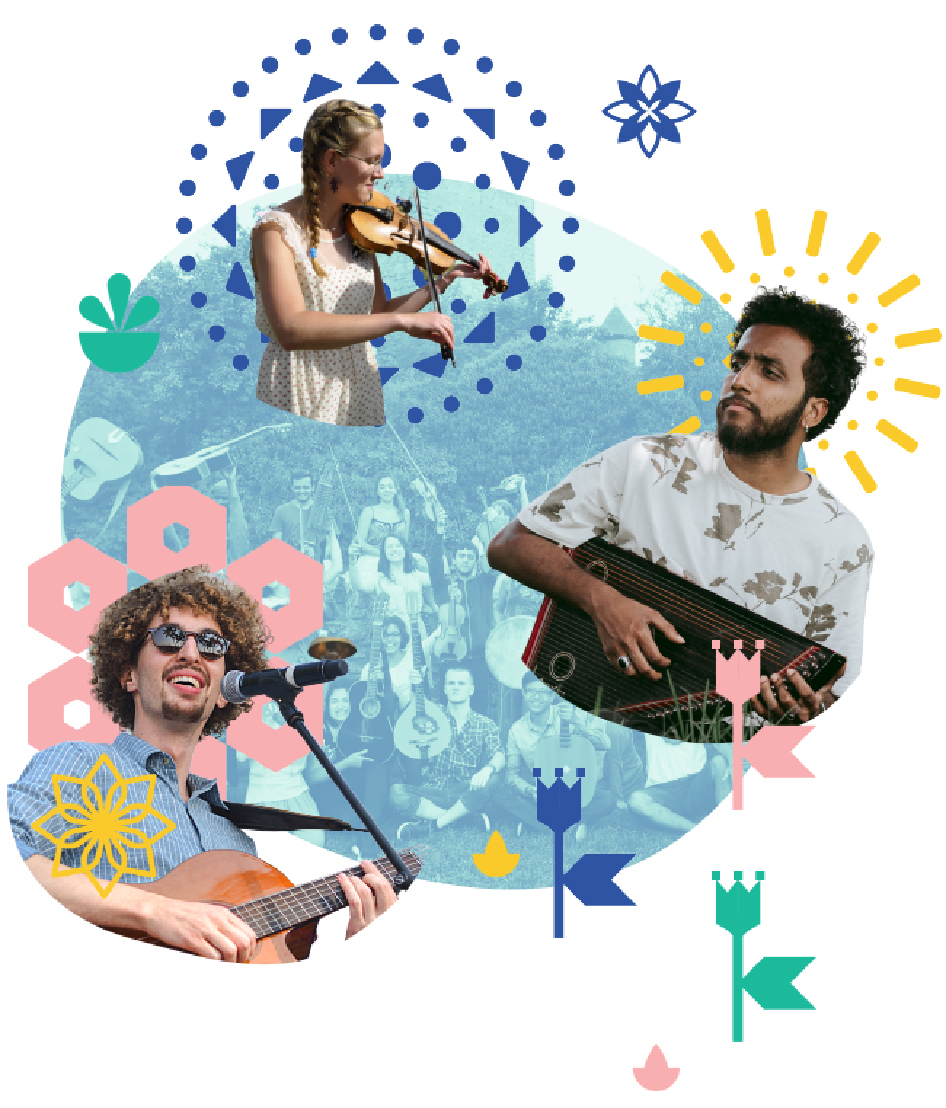
At the core of Ethno is its democratic, peer to peer learning approach whereby young people teach each other the music from their countries and cultures. It is a non-formal pedagogy that has been refined over the past 33 years, embracing the principles of intercultural dialogue and understanding. Ethno provides a unique opportunity for young people from across the globe to come together and engage through music in a manner that is characterised by respect, generosity and openness.
The goal of Ethno is to inspire musicians through these interactions to deepen their musical interests and to build a global network that supports their careers. Each Ethno music camp combines workshops, jam sessions, rehearsals and performances that enable participants to develop both personal and professional skills. Through Ethno, musicians gain a greater understanding of each other’s cultures. At Ethno, music is a powerful tool that fosters inclusion, understanding and acceptance.
ETHNO’s VALUES AND COMMITMENTS
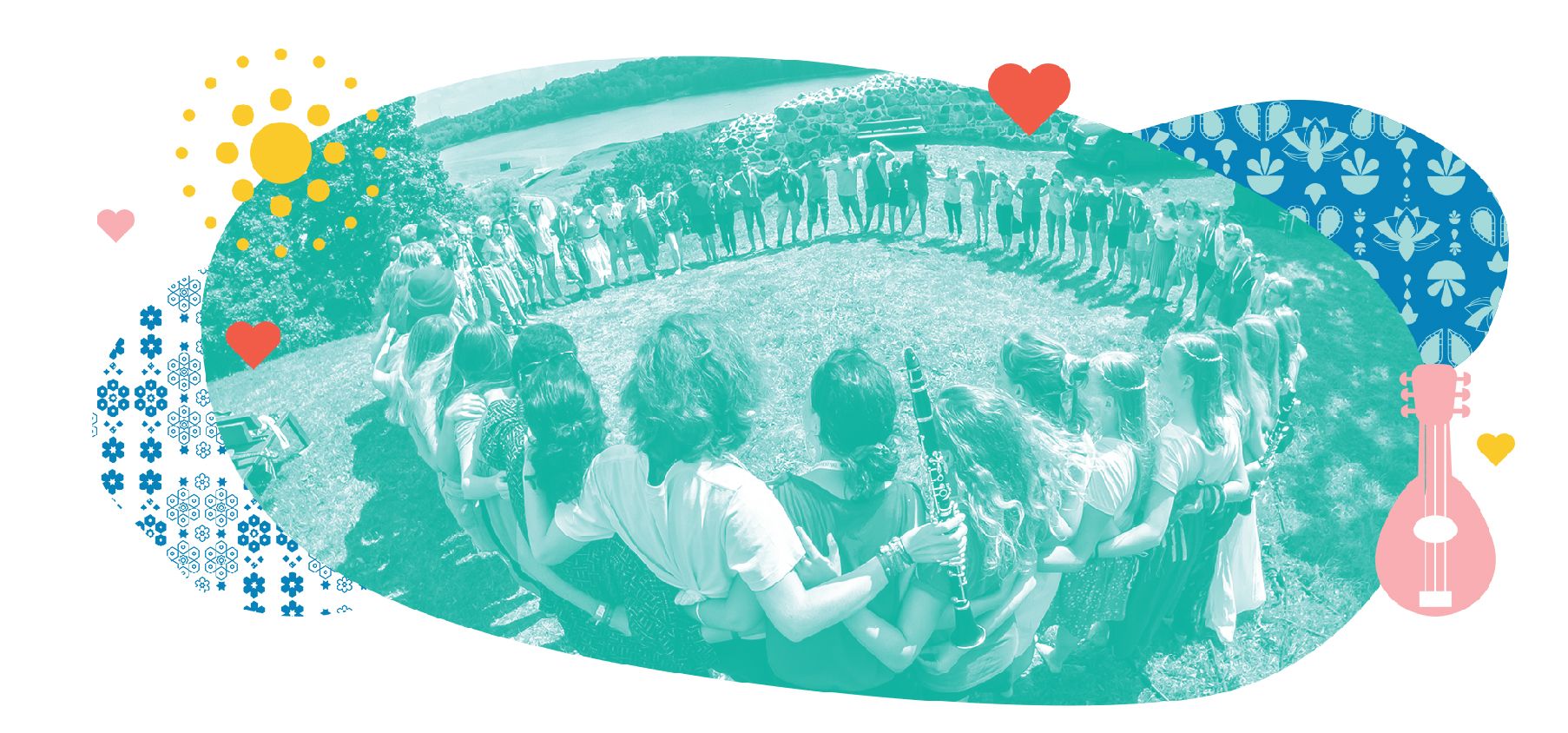
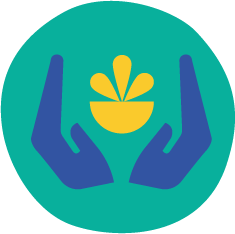
Keep traditional music alive amongst young people.
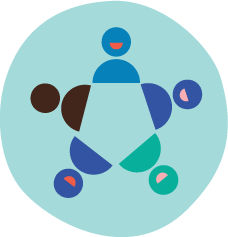
Celebrate uniqueness & ensure inclusion in all that we do.

Through peer-to-peer and experiential learning.

Create opportunities to attend Ethno activities worldwide.
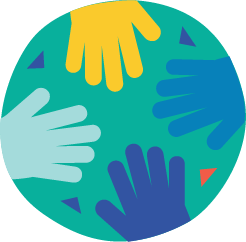
For musicians of all genders, cultures, skills and beliefs.

Grow musically, professionally & personally.
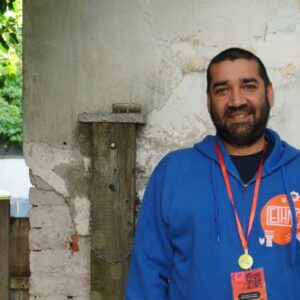
Ethno Program Director
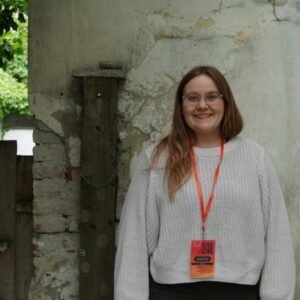
Ethno Program Manager
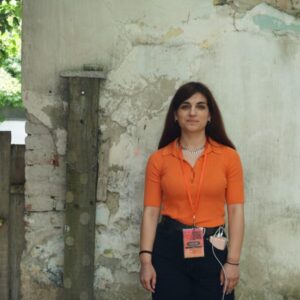
Ethno Program Assistant
JMI is a global network of non-profits that provides opportunities for young people and children to develop through music across all boundaries. Open to all styles of music, we work for, and with, young musicians across genres. By harnessing the power of music to bridge social, geographical and cultural divides, JMI programs create an international platform for intercultural dialogue and acceptance.
JMI was founded in Brussels, Belgium in 1945 by a group of compassionate musicians and organisers who saw music as a means of bringing young people together to overcome the divide created by the two World Wars. Today, JMI is present in over 70 countries across the globe and continues to enable young people to develop through music across all boundaries.

Ethno is guided and shaped by the Ethno Committee, a global steering group within JM International that works to ensure the Ethno program develops in a sustainable, positive and democratic way. Each Ethno is represented within the Ethno Committee by one member, and the committee works with the broader network of Ethno organisers around the globe to make Ethno even better each year. The Ethno Committee (or EC) currently comprises 43 members from 41 countries, representing all 6 continents.
Ethno is based on workshops where the participants teach each other music from their cultures. To teach, learn and play together is the foundation of the Ethno experience. Before the Ethno gathering starts, participants are asked to prepare a song or tune from their home culture to teach the other participants – something that is not too difficult but not too simple either. Workshops last for about one hour, and there are experienced Ethno artistic mentors at hand who help participants before the workshop to prepare, and during the workshop to teach, but only if participants need a hand. All teaching is done by ear, but sheet music is sometimes used as a support or as a record of what was learnt. Once the songs and tunes are taught, the practice sessions begin! Artistic mentors work on arranging the songs and tunes, bringing in creative ideas from the group in consultation with the teacher-participant. Rehearsals take place every day, and the attending musicians practice all of the day’s music as well as what was taught previously, while the artistic mentors work on crafting and honing the Ethno repertoire until is ready to present!

If you are a young musician between the ages of 15 and 30 then Ethno is for you!
No matter your level of musicianship, what counts at Ethno is that you are open to learn from, and share with, musicians from all over the world. At Ethno music is taught not by teachers, but by you! Musicians bring with them traditional/folk songs and music from their countries and teach them to others. Likewise you will learn music from other countries taught by the other musicians attending the Ethno. Many more tunes, songs and compositions are shared and learnt at jams that go on well into the night!
Apply for an EthnoEthno artistic mentors are stewards of the music-making process, they assist and support the musicians where needed in order for them to be able to impart their music to the Ethno group. Artistic mentors are responsible for the social and mental wellbeing of the group as much as they are responsible for the artistic outcome. As such, they are specially trained and have the requisite experience to support young musicians attending Ethno to connect and explore a world of music and culture in a safe and inclusive environment.
Become an Artistic Mentor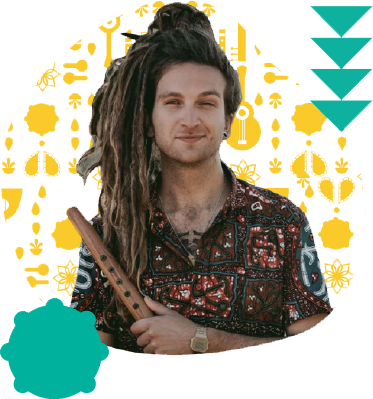
Ethno started in 1990 in the town of Falun, Sweden, in an effort to bring the status of folk music on par with classical music and jazz, as well as to create opportunities for young folk musicians to interact, share knowledge and develop something entirely new and contemporary from existing traditions. Ethno’s peer-to-peer learning and teaching approach was a runaway success. Musicians formed lasting friendships on the basis of musical and cultural sharing and began to create projects and performances, fuelling the growth and development of “world music”.
The Swedish model was successfully adapted by Estonia and Belgium and these three Ethnos were established in the first decade. As word spread, the next decade saw Ethnos rise in Cyprus, the Czech Republic, England, Slovenia, and the first Ethno outside Europe – Uganda. In its third decade (2010-2019), Ethno witnessed explosive growth and twenty-five other Ethnos were founded, establishing the project and it’s values on every continent. Today there are Ethnos in Oceania – New Zealand, Australia and the Solomon Islands; Asia – India and Cambodia; the Middle-East – Jordan, Lebanon and Palestine,;Africa – Algeria, Malawi, Mozambique, Tanzania, Tunisia and Uganda; and South America — Bahia, Brazil and Chile, with new ones being created across the globe every year. While each Ethno is different and unique, the Ethno spirit pervades throughout, and music and knowledge is openly shared in the spirit of mutual respect and appreciation.
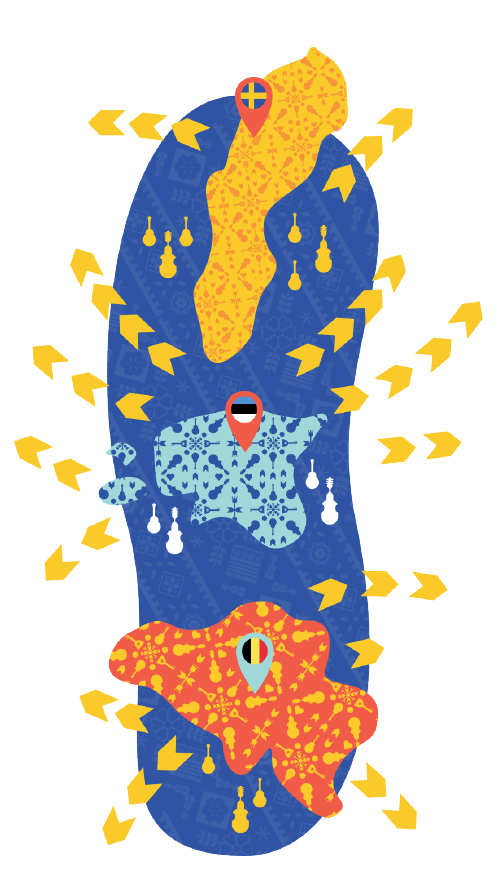
Outstanding contributions by people who have selflessly devoted themselves to the project include Magnus Bäckström, the founder of Ethno, Gunnar Nolgård, Head of Musik för Ungdom (JM Sweden), Ivo & Chris Lemahieu, who started Ethno Flanders, Susanne Lind, a participant at the first Ethno in 1990 and now a distinguished artistic mentor and Future Prize winner, Allan Skrobe, a vastly experienced musician and sound engineer who now coaches budding artistic mentors, Fernando ‘Nano’ Stern, a renowned artist in his home country of Chile, Karin Hjertzell, for fifteen years at the helm of the planet’s largest Ethno – Ethno Sweden, Peter Ahlbom, Who has worked for and photographed Ethno Sweden since 1994, and Margit Kuhi, the creator of an entirely self-sufficient Ethno ecosystem in Estonia, among countless others.
Inspired by the movement and the musicians, over thirty other Ethnos are incubating. Growth areas include East Europe and the Balkans, Central and South Africa, the Middle-East and the Americas. Ethno is not just a music project, it is a place of belonging, where everyone is included irrespective of musical level or accomplishment. To the musicians, organisers, crew members, artistic mentors and staff, Ethno is home.

(Magnus Backstrom, Ethno’s Founder)
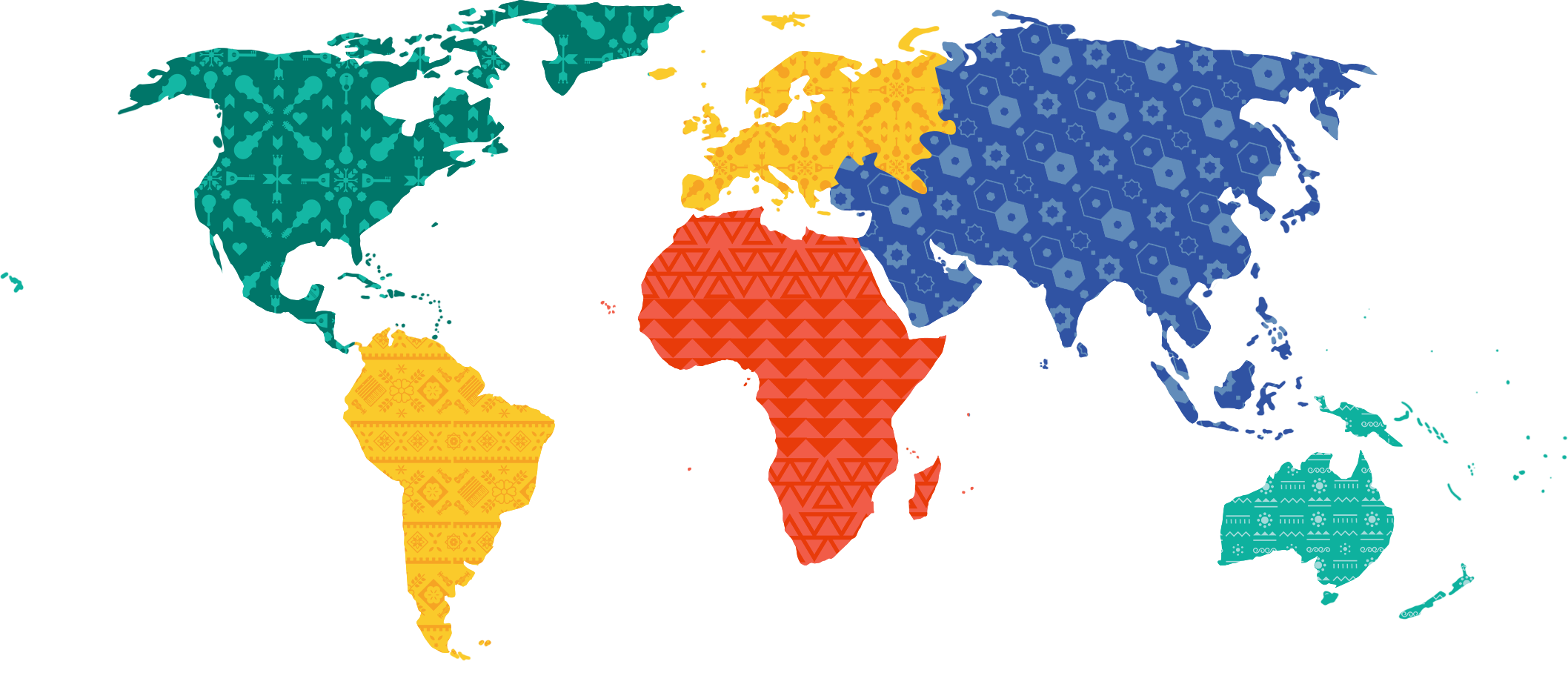
Ethno started as a single summer music camp in Sweden but today has evolved into an entire ecosystem of Ethno-related activities. Here is an overview of the Ethno ecosystem:

Our international music camps for young musicians remain at the core the Ethno experience and now take place all year round in over 40 countries.

Ethno promotes emerging artists by sending selected groups of talented & diverse musicians on tour when the Ethno camp is over.

A range of trainings that allow musicians to develop their skills as
artistic mentors.

Physical and digital training to support and sustain the work of Ethno organisers.

Too young to attend a regular Ethno? We’ve got you covered! Several Ethnos now offer experiences for kids & sometimes their parents too!

Local Ethno orchestras made up of young musicians from diverse communities.

One-off Ethno workshops for all kinds of groups of young people and children.
Ethno-inspired initiatives from around the world!
The role of the Artistic Mentor
The work of Ethno artistic mentors is to prepare the participants at the Ethno camp for the upcoming concerts, livestreams and recordings. In order to do this, they structure and help participants prepare the workshops that they must give in order to share their music with the whole group. This could mean working in advance of an upcoming workshop to support and assist the participants who are teaching their tune/song. During the workshops, artistic mentors provide assistance as needed (for example – playing the rhythm at a low volume on loop, playing the chords, or writing charts to make lyric and chord learning easier). At the beginning and end of the day, they also organise and facilitate group rehearsals, wherein all the musicians at the Ethno come together to rehearse and play what they have learnt.
Artistic mentors are Ethno musicians who have been to a number of camps and have taken on themselves the responsibility of organising and preparing the musical outputs, and assisting the Ethno organisers. This can include looking after participants during workshops and at camp, technical work such as soundchecks and recordings, and emceeing the concert(s).
Artistic Mentor Trainings
Artistic Mentor Trainings aim to help potential artistic mentors acquire new skills and enhance their already existing ones so they are well-equipped to take on the artistic mentor role. This includes in-depth musical knowledge such as arranging, covered by the Ethnofonik training, but also a deeper understanding and insight on a variety of topics such as world music styles, neurodiversity, gender diversity, physical and mental health.
Artistic mentors are empaths with high satisfaction levels vis-a-vis themselves and their careers, and are thus able to provide support, insight and direction to the musical activities within Ethno as well as inspire participants.
Ethnofonik is an annual two-week long, interactive training course aimed at providing artistic guidance to aspiring Ethno artistic mentors. The course aims to equip participants with the tools to facilitate the exchange of music and culture to
different audiences through music. Following the Ethno pedagogy, Ethnofonik enables participants to become effective coaches on music exchange projects in various contexts, from international exchanges to local musical workshops. Based on the example of the Artistic Mentor role at Ethno, the particpants at Ethnofonik explore this unique peer-to-peer approach whilst building a repertoire of their own (à la Ethno) to perform at the final public showcase. Ethnofonik engages musicians with on-the-job artistic mentor training, giving them the opportunity to practice what they have learned in local schools, conservatories and youth centres.
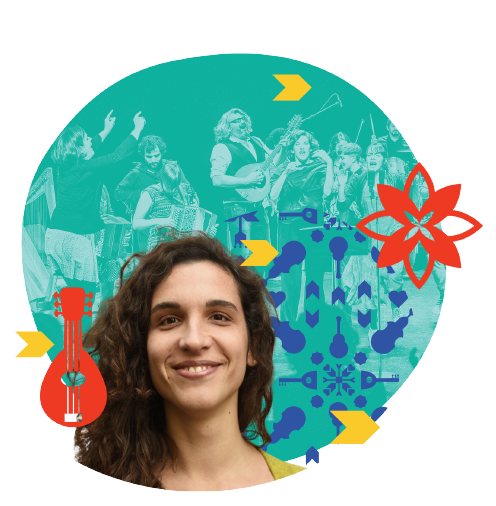
Ethno organizers are the people who take the responsibility of creating and sustaining the structure of the Ethno camp and making everything possible within – the creation of the music, concert performances, cultural and musical exchanges, and peer-to-peer learning. With 160+ Ethno organizers present in over 40 countries, communication and exchange of experiences within the network is important to keep the Ethno community updated and connected.
The Ethno OAT is organized by Jeunesses Musicales International to be a platform for exchange, training and inspiration for Ethno organizers. Like Ethno, the training is peer-to-peer, with professional inputs brought in from time to time to give an extra impetus to learning and development. Regular evaluations help organizers understand missing needs and steer the training activities of the future. the Ethno OAT also provides organisers with networking opportunities, vital cultural insights and learnings regarding the differences in behavioural norms, helping them better prepare to receive international participants representing a diverse range of countries and cultures.